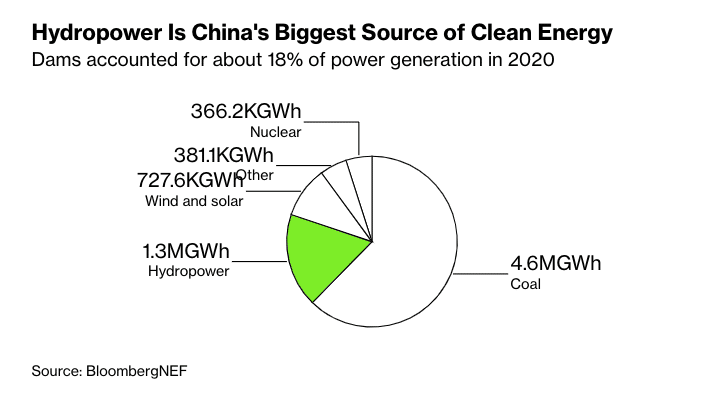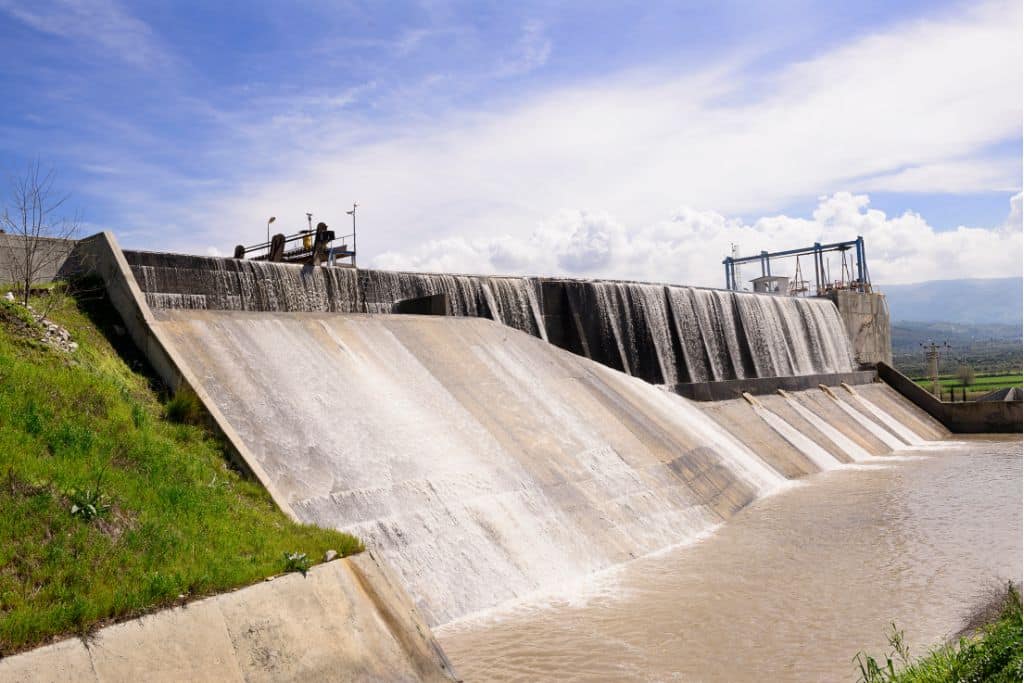More than two months of abnormally high temperatures and no rain have dried up the Yangtze river, straining the country’s energy grids, damaging crops, and intensifying forest fires.
—
Southwest China is battling the worst drought in more than half a century. Rainfall in the Yangtze River Basin is at its lowest since 1961, down 45% from last July, and some areas have not seen rain in more than two months.
Water levels in the Yangtze river – the third-largest in the world flowing about 6,300 kilometres (3,900 miles) through China– have halved, affecting trade, limiting drinking water supplies, and causing rolling blackouts.
Meanwhile, a heatwave has brought scorching temperatures across large parts of the country, with dozens of cities recording temperatures over 40C (104F) for several days straight.
Last week, for the first time in nine years, the government issued a national drought alert while local authorities in Sichuan ordered power cuts to homes, businesses, and factories amid persistent blackouts. Here, water shortages have severely reduced hydroelectric power generation, on which the province depends for more than 80% of its energy, and that accounts for about 18% of China’s power generation, its largest source of clean energy according to BloombergNEF.

Daily hydropower generation was slashed by half and reservoir water levels are down by 4 billion cubic metres from last year, Bloomberg reports.
Power shortages are affecting manufacturers of pesticides and solar panels as well as threatening the supplies of everything from grains and aluminium to battery materials used in electric vehicles. Sichuan, a major manufacturing hub, is home to some of the world’s biggest car and tech companies. The power cuts issued in the province affected, among others, suppliers of Toyota, Volkswagen, Tesla, Intel, and Apple, with risks of major repercussions on the global supply chain.
Initially ordered for three days, power rationing orders were extended by about a week and are set to remain in force at least until August 25.
Besides straining energy grids, the drought has damaged thousands of acres of crops in Sichuan and neighbouring Hubei province. In a bid to minimise the heatwave’s impact on agriculture, China’s Ministry of Agriculture will try to artificially increase rainfall through cloud seeding as well as cover crops with a water-retaining agent – Grist reports. The government has also ordered the discharge of water from several large upstream reservoirs.
The drought comes as China’s economy is already struggling under Beijing’s strict Covid Zero strategy, which has kept most foreigners outside the country for more than two years.
You might also like: China to Increase Coal Production Amid Heatwave-sparked Surge in Electricity Demand


















